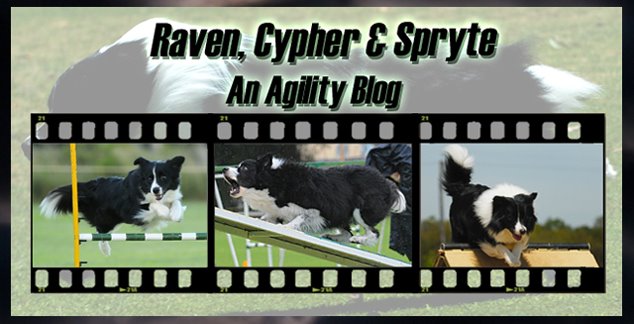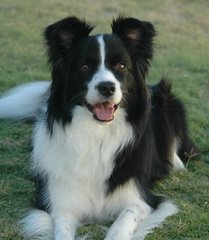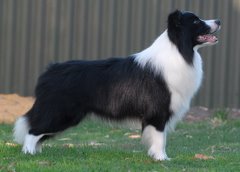I don't know if this exists in *every* single human sporting endeavour or even just any kind of goal setting from the individual to the collective but I'm starting to notice no matter where I go, who I associate with or whatever thing it is I want to do there are always TWO factions/methodologies/philosophies of approach that spring up amongst these things. Agility is no different. There are the people who are not competitive and then there are those who are. Regardless of dog, breed, skill level the handlers/owners of the dog can be placed in one of those two categories. What's more is that there is absolutely *nothing* wrong with being in either camp. However it would appear that according to some that if you are in the 'competitive' camp then you are falsely elevating the 'game' to something more than it is, giving it significance it really doesn't deserve and treating it like *shock horror gasp* it is 'important'. This is apparently the "wrong" thing to do - you must be blaming the dog for the majority of your errors on course and not taking on your fair share of responsibility. One of the more cynical catch phrases that has developed around my agility area (in response to the judgement that being competitive is a negative way to be) is "Those who win are not having fun". Meaning the implication that if you are trying to win then you just cannot be having any fun. People use the phrase round here with a grin and a laugh because those of us in the competitive camp know full well what fun we can have out there whilst still running clean and being in contention for placings. My dad always uses that saying on me "Something worth doing is worth doing well". I choose to give 100% to the sport I love because I truly believe that saying. Agility is worth doing and it is worth doing well - what's the point in doing something half-baked and casually? But that is just my mindset - I am fully aware that there are those out there (in the not competitive camp) who just have a half-baked, casual and dare I say it lazy approach to training and trialling agility. They are perfectly entitled to this approach and I welcome those people as well as the competitive ones to come to the club and trials. But then to have these non-competitive (therefore having far more fun than me apparently) label the competitive as taking things too seriously and ruining the enjoyment for themselves and their dog, (ie blaming the dog for everything) is about as logical as these casual trainers blaming their dog for stuff that goes wrong on course. Observing both kinds of people at trials I have come to realise that those in the non-competitive camp have a much harder time recognising that it was what they did that caused the dog to go wrong than the competitive handlers. Why? Maybe because the competitive handlers actually approach their training and trialling with more dedication and motivation to actually figure out what went wrong and then try and train for that gap in their skills. Logic dictates that this is what you do if you *want* to get better at something. When people say "team" as in "what team is in front of me in the running order" they mean the handler and the dog. The notion that the workload in a team should be 50/50 needs to be thrown out when it comes to agility. The fundamental skills the dogs needs to have to fulfil their side of the partnership do not make up 50% of the workload. More like 20%. The skills I refer to here are the contacts, the weaves, the start stay, the jump skills and the side changes. Once these skills are taught (and taught well from the smallest starting step to the full chain of the behaviour) the handler has the biggest load. As it has been said 80% of agility is between the obstacles. It will not matter if your dog has never missed a weave or a weave entry, has never popped a contact or broken a start ever, or just does not drop bars at all - all that will be irrelevant if you cannot learn how to handle your dog to give them the best directions you can on a course. Competitive people that I have observed for the most part know this - indeed I witness non-competitive people as well being aware that their directions on course were not timely or out of place. The difference is the competitive people will take that sequence that they had problems with, or focus on that skill that has a weakness and focus on fixing that weakness or difficulty during training the following week. Non-competitive people are not that fussed about it - so what if that same problem crops up weekend after weekend in trials we're just doing this for fun anyway...good for you do it for fun I say! But don't come moaning to me about the fact that you're never going to get out of Novice or Excellent if you don't approach your training in a methodical, logical and focussed manner. Wow this entry is long - I shoud probably stop here as I have to go to work....but I don't think I'm finished, there will be more to come.
Thursday, April 13, 2006
Subscribe to:
Post Comments (Atom)




No comments:
Post a Comment